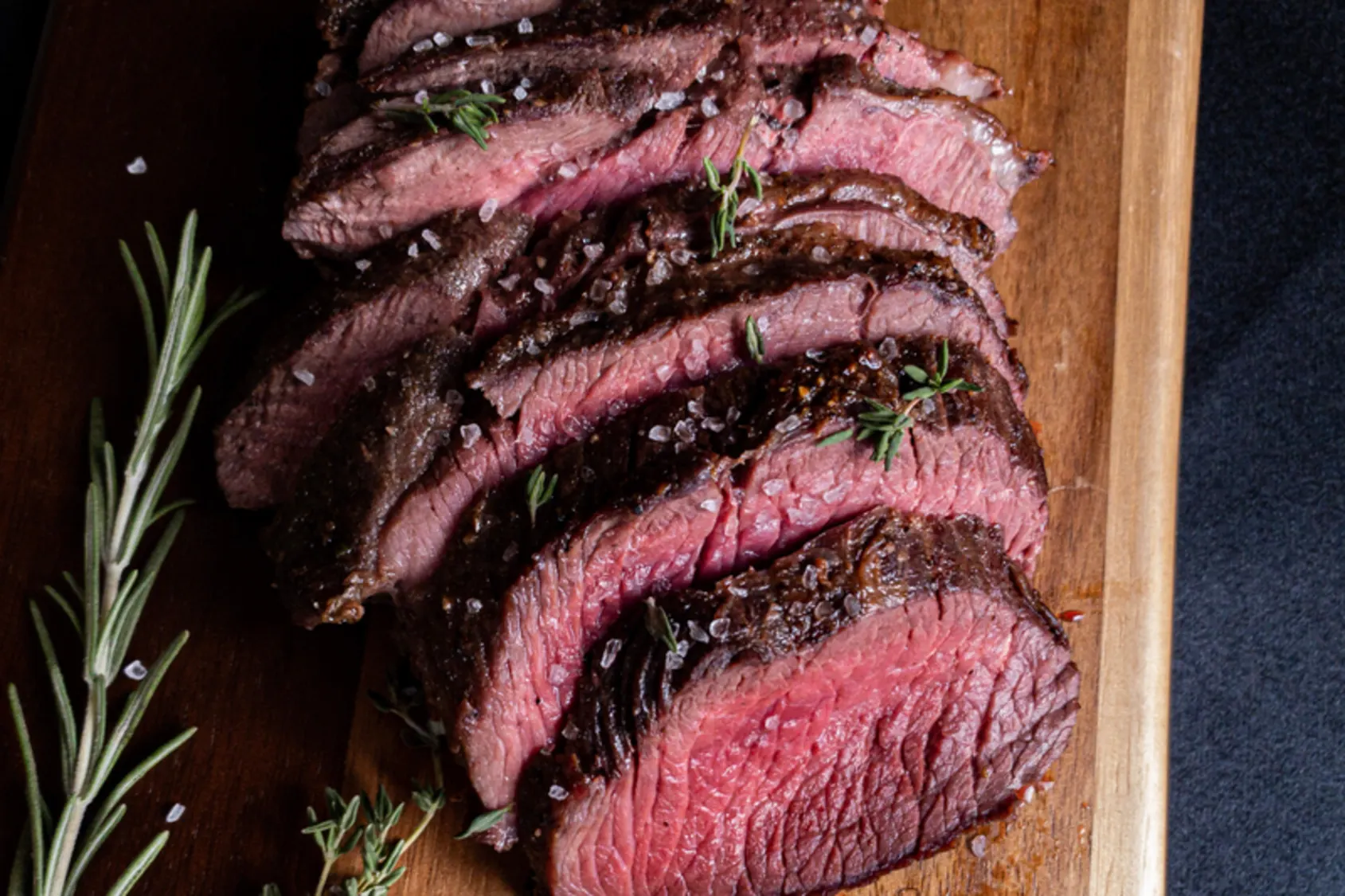
Emu Meat
Lean, red game meat from the native Australian emu bird, rich in iron and protein.
Ingredients
- •Emu fillet
- •Native herbs
- •Olive oil
- •Salt
- •Pepper
- •Bush spices
Instructions
Season
Rub with native herbs and spices
Heat Pan
Get pan very hot before cooking
Cook
Sear and cook to medium-rare
Rest
Let rest before slicing
Emu meat is a unique and nutritious protein that has been a staple food source for Indigenous Australians for thousands of years. This lean, red game meat comes from the emu, Australia's largest native bird, and offers a distinctive flavor that's often described as mild and slightly sweet with a beef-like texture.
Indigenous Australians have long valued the emu not only for its meat but also for its eggs, oil, and feathers. In modern times, emu farming began in Western Australia in the 1970s, and the meat has since gained popularity among health-conscious consumers and those seeking sustainable, native food options.
Cooking emu meat requires careful attention as its extremely lean nature means it can become tough if overcooked. The best results are achieved by cooking it to medium-rare, similar to kangaroo meat. Popular preparation methods include pan-searing fillets with native herbs and spices, using it in stir-fries, or incorporating it into bush tucker-inspired dishes. The meat pairs beautifully with native Australian ingredients like wattleseed, mountain pepper, and bush tomatoes.
While traditional Indigenous preparations might involve cooking the meat over an open fire, modern Australian chefs have embraced emu in contemporary cuisine. You'll find it served in high-end restaurants that specialize in native Australian ingredients, often presented as elegant fillets with bush tucker-inspired sauces or in sophisticated takes on traditional dishes.
From a nutritional perspective, emu meat is a powerhouse. It's exceptionally lean, containing less than 2% fat, making it one of the leanest red meats available. It's rich in protein, iron, and vitamin B12, while also being a good source of zinc and other essential nutrients. A 100g serving contains approximately 100 calories, making it an excellent choice for those watching their calorie intake.
For the health-conscious consumer, it's worth noting that emu meat is free from hormones and antibiotics, as these are not permitted in Australian emu farming. The meat is also high in beneficial omega-3 and omega-6 fatty acids. However, due to its very low fat content, care must be taken not to overcook it, as this can make it tough and dry. Those new to cooking emu might want to start with marinated cuts or seek advice from their butcher on the best cooking methods.
